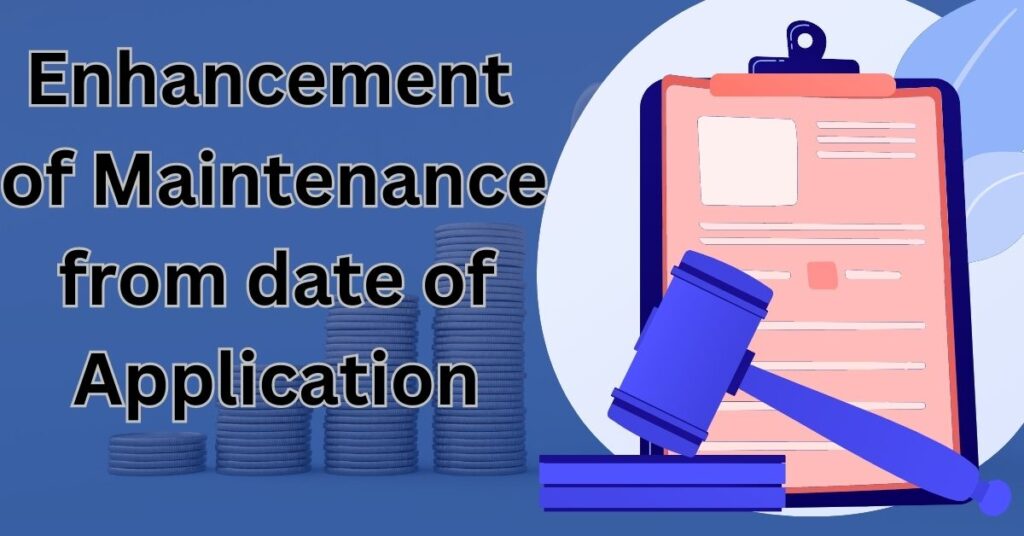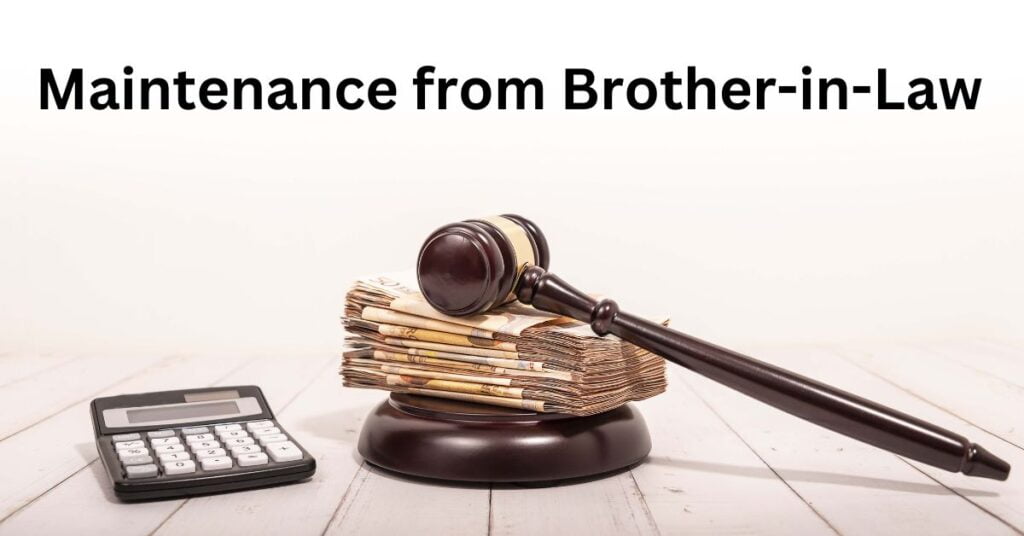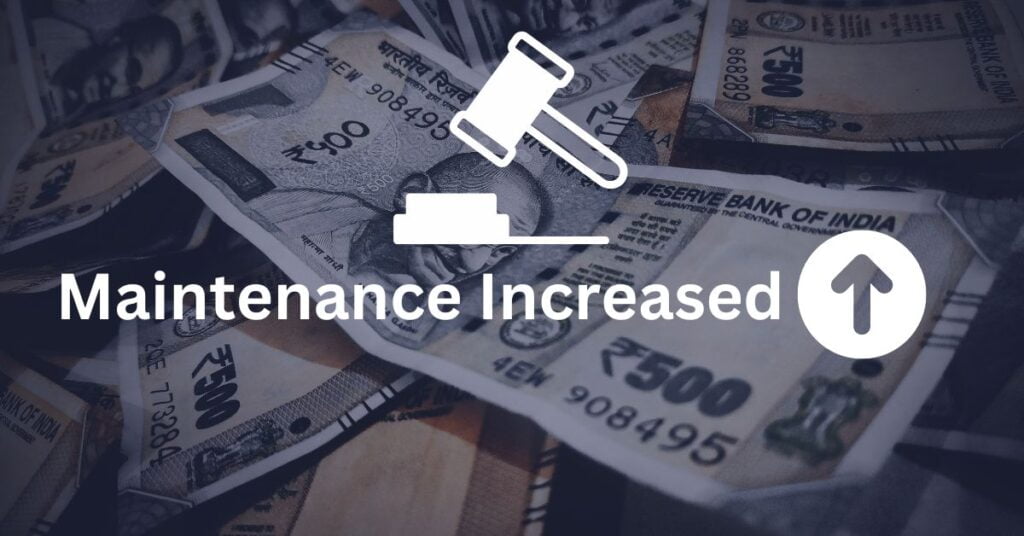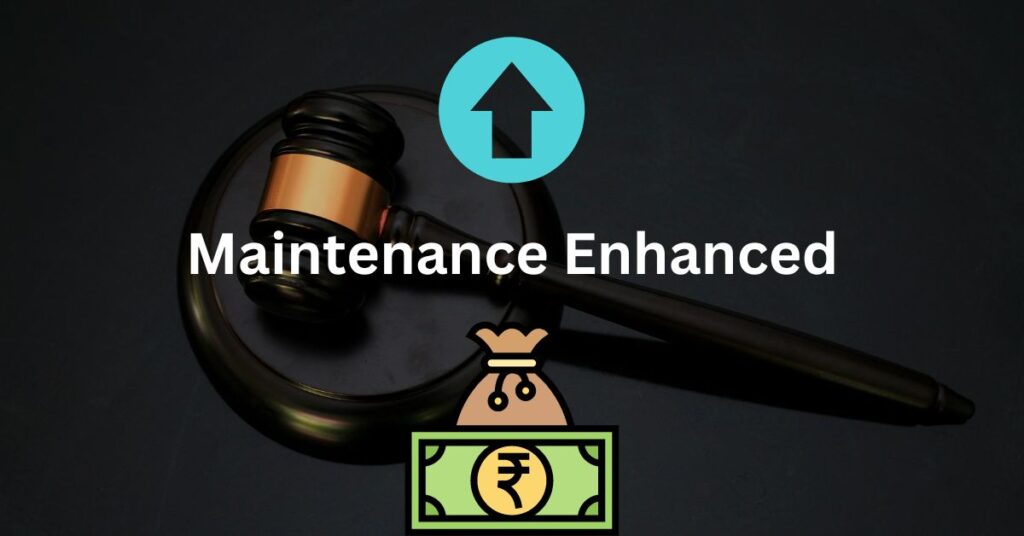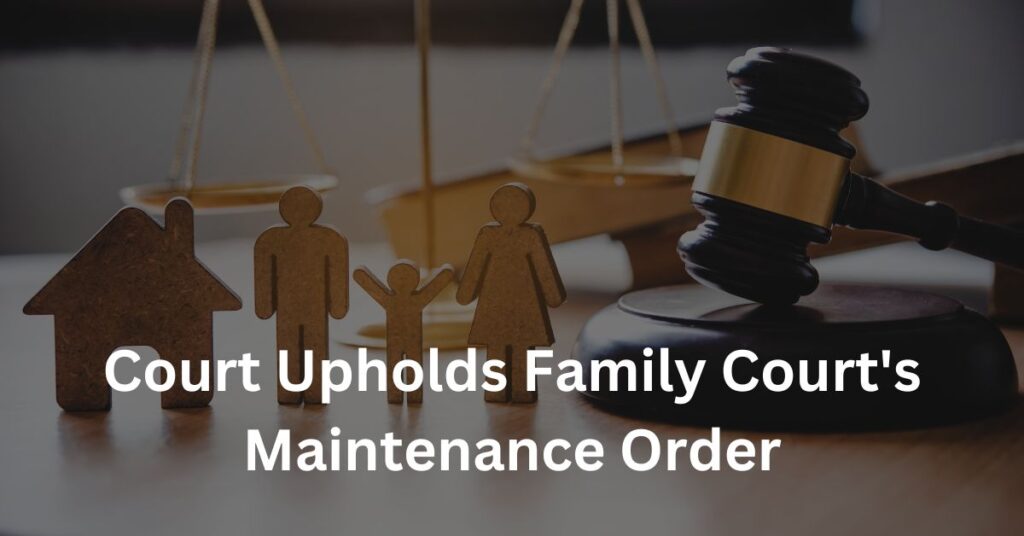Introduction:
Maintenance, also known as alimony or spousal support, is an important aspect of divorce proceedings. In this blog, we address common questions related to maintenance, shedding light on key considerations and providing clarity on various scenarios. Let’s dive in.
Table of Contents
ToggleWhat is Maintenance in Divorce?
Maintenance, in the context of family law, refers to the financial support provided by one spouse to the other after separation or divorce. It is important to note that maintenance can be provided in case of separation as well. This means that it can be granted even if the divorce case is not filed or, if filed, it’s still in process.
It is a legal obligation to ensure that the dependent spouse, who may have lower or no income, is adequately supported and can maintain a standard of living similar to what they had during the time the husband and wife were living together. Maintenance can be awarded to either the husband or the wife based on their financial needs and the ability to support themselves. The amount and duration of maintenance vary depending on the specific circumstances of the case, including factors such as the length of the marriage, earning capacity, and other relevant considerations.
Can a husband claim maintenance if his wife cheats on him?
Granting maintenance hinges primarily on the financial status of both spouses. A husband can claim maintenance if he is financially unable to support himself, and his wife’s earnings significantly surpass his. Additionally, the conduct of both parties is a consideration. If the husband is financially strained and it is proven that the wife has cheated, the chances of him receiving maintenance are notably favorable.
Can the wife claim maintenance from her husband in India, even if she has cheated on him?
Yes, she can claim maintenance as the primary consideration for granting it is the financial status of both spouses. The conduct of parties becomes relevant only when proven in court. While it may take time for a husband to establish infidelity, the wife can receive interim maintenance if her earnings are insufficient to support her. If the husband’s allegations are substantiated, maintenance may be denied subsequently.
Can a working wife claim maintenance from her husband?
Yes, a working wife can claim maintenance from her husband under certain circumstances. In India, the right to claim maintenance is not solely based on the gender of the spouse but rather on the financial status and needs of both parties.
If a working wife is earning significantly less than her husband and is unable to maintain herself adequately, she can approach the court for maintenance. The court will consider various factors, including the wife’s income, the husband’s income, their respective financial needs, and other relevant factors to determine whether maintenance should be granted.
Does the husband still need to pay maintenance if the wife starts working after receiving court-ordered maintenance?
The husband can file an application in court to inform about the change in the wife’s financial status. Based on this, the court can modify the maintenance order. It’s important to note that the wife’s maintenance does not automatically cease if she starts working; a court order is necessary to modify the maintenance order.

Why do fathers pay maintenance?
Contrary to a common myth, both parents are responsible for child maintenance based on their respective earnings. If the mother is earning, she also shares the responsibility of providing maintenance for the child.
If both the father and mother are working, how is the maintenance amount divided between them?
When both the father and mother are working, the division of maintenance amount for the child is usually determined based on their respective incomes and financial capabilities. The court considers the following factors:
Income Disparity: The court evaluates the income difference between the father and mother. The parent with higher earnings may be assigned a larger share of the maintenance obligation.
Child’s Needs: The child’s standard of living and specific needs are taken into account. The maintenance amount should cover the child’s education, medical expenses, and overall well-being.
Proportional Contribution: Each parent’s contribution is calculated proportionally based on their income ratios. For example, if the father’s income is 60% of the total parental income, he may be responsible for 60% of the maintenance amount, and the mother for the remaining 40%.
Custodial Arrangements: The court considers the custody arrangements. If one parent has primary custody, the other parent may bear a higher proportion of the maintenance burden.
Shared Expenses: Certain expenses, such as school fees or extracurricular activities, may be divided equally between the parents, irrespective of their incomes.
Additional Factors: The court may also consider other factors, such as the child’s age, health, and any special needs.
Can unemployed husband claim maintenance?
Yes, an unemployed husband can claim maintenance under certain circumstances. The key consideration is the financial status of both the husband and the wife. If the husband is genuinely unemployed and unable to support himself financially, while the wife has sufficient means to provide for both herself and the husband, then the court may grant maintenance to the unemployed husband.
However, it’s important to note that the court will examine the reasons for the husband’s unemployment. If the husband is voluntarily unemployed or has chosen not to work without a valid reason, the court may be less inclined to grant maintenance. Similarly, if the husband is intentionally avoiding work to evade financial responsibilities, the court may not favor his claim for maintenance.
Conclusion
Maintenance, also known as alimony, is crucial in Indian divorce proceedings, ensuring financial support for the dependent spouse. Cheating may impact maintenance decisions, but financial status is key. Both spouses can claim maintenance if eligible.
When both parents work, the court considers income disparity, child’s needs, proportional contribution, custodial arrangements, shared expenses, and more to divide maintenance. Unemployed husbands can claim maintenance if genuinely unable to support themselves, and the wife is financially stable.
It’s extremely important to note that each case is unique, and the court will make its decision based on the specific circumstances presented before it.
